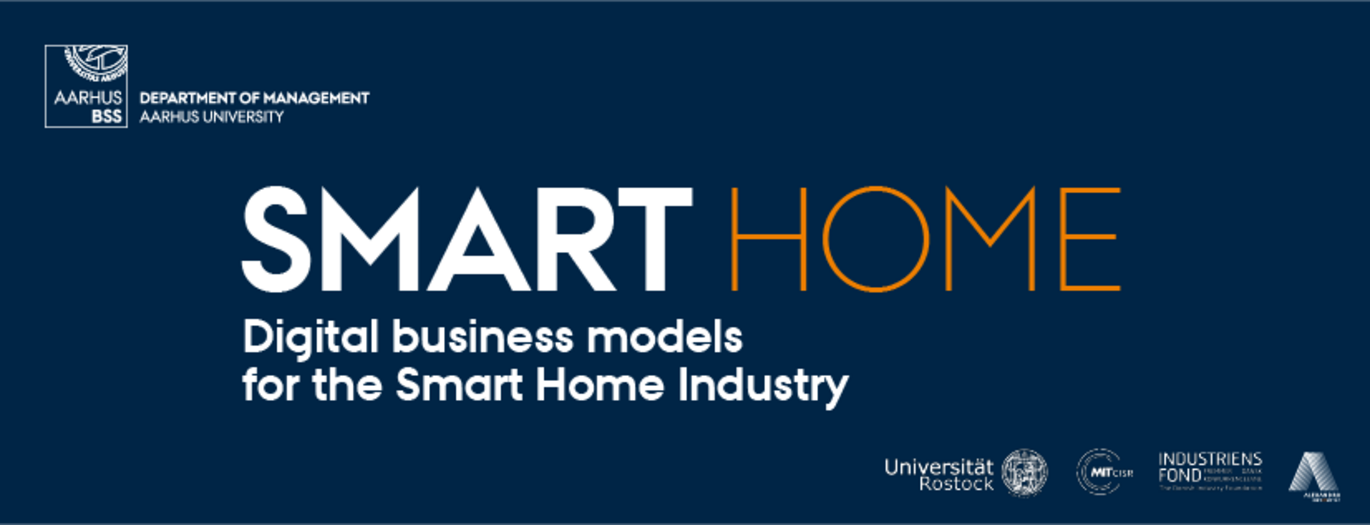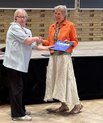The Smart Home project concludes with a dissemination campaign
The project has developed concrete tools for companies in the Smart Home industry, five scientific articles, a new digital maturity goal, teaching material, company relations and media profiling of the department.

Currently, there are two advertising campaigns running on LinkedIn. One of the ads is a small cartoon that briefly presents the Smart Home project's tools for companies that are considering making their products for private homes "smart". The second ad is a short video in which Professor Andrea Carugati introduces an online tool where companies can measure their digital maturity.
The ads are part of a campaign that in December and January will market the tools, videos, booklet, cases, articles, etc. which are the result of the two-year project funded by Industriens Fond.
“It is important for Industriens Fond that their grants translate into tools and knowledge that benefit many Danish SMEs, so that is why we are informing the business community about what has come out of the project ”says Professor Børge Obel who is the leader of the project.
The project group also consists of Professor Andrea Carugati, Postdoc Lone Dalkjær Kavin, Associate Professor Marco Hubert, Secretary Inger Larsen and Project Manager and Communication Advisor Pernille Kallehave. Professor Christian Brock from the University of Rosctock (Germany) and Research Scientist Nils Fonstad from the MIT Center for Information System Research have participated as research partners, while the Alexandra Institute has been responsible for development courses for companies.
We can now offer companies a research-based "toolbox" consisting of
- an online “diagnosis” tool where companies can get an assessment of their digital maturity
- an online clarification tool where the business manager can go in depth with the recommendations they received from the “diagnosis”
- a virtual development course, Living Labs, offered by the Alexandra Institute
"In addition, there are a number of dissemination activities such as a booklet, company cases, videos where the researchers present their research results, a Vodcast (produced by BSS Insight) and a number of journalistic articles”, says Postdoc Lone Kjær Kavin.
Practice or research
The foundation's clear focus on the fact that grants must create concrete value for Danish companies may at first seem difficult to reconcile with researchers' goals for scientific publications, but this is not the project group's experience.
"The Smart Home project has been very rewarding in many ways", says Børge Obel and lists a number of derived results:
Relevant practical research has been carried out, which has created collaboration between the department's three sections, OSA, ITIM and MAR.
The result of the research collaboration is five research articles; three articles on consumer behavior and two articles on digital maturity. The results have been presented at conferences, but due to Corona there were not as many as planned.
A new digital maturity measure has been developed, which has been tested on 400 Danish companies.
A multi-case study on digital transformation has been made with 10 company cases.
A small book about digital transformation in an ecosystem has been published.
The research results have been used in the teaching of the elite program in Digital Transformation, so that the students could discuss and critique relevant research before it was published.
Collaboration has been created with 50 companies and industry organizations.
A research-based development course has been developed for SMEs.
Digital teaching material has been produced in the form of six 15-minute videos for our own and external use.
The grant has funded the research, among other things through a post doc and resources to the participating researchers and administrative staff.
The project has profiled the department as an important player in relation to digitalization and given the department a lot of media coverage.
“So you can easily get good research out of projects like these while creating a more concrete impact for companies. However, this presupposes that you organize your project so that there is room for research, e.g. by collaborating with partners who are closer to SMEs than we normally are here at MGMT and that resources are set aside for dissemination. There is nothing as practical as good relevant research”, concludes Børge Obel.
See more at https://mgmt.au.dk/smarthome/






